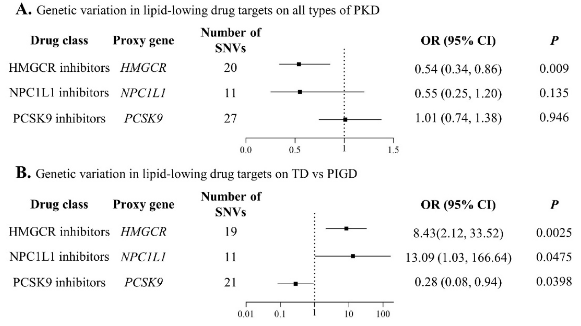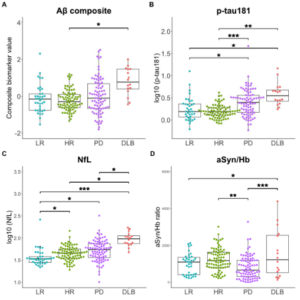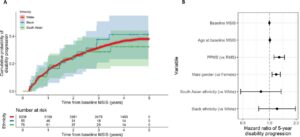Lin Shen, et al. – Xi’an Jiaotong University.

Background: Circulating lipids, in terms of both overall levels and composition, may play a role in determining PD risk.
This Study: Shen and colleagues used inhibitory genetic variants of three targets for lipid-lowering drugs – HMGCR, NPC1L1, and PCSK9 – as proxies for the effects of these drugs on PD risk.
- Variants for HMGCR significantly lowered the risk of PD (OR = 0.54, 95% CI = 0.34-0.86, p=0.009). NPC1L1 variants trended towards beneficial effects (OR = 0.55, 95% CI = 0.25-1.20, p=0.135), while PCSK9 variants showed little effect.
- HMGCR and NPC1L1 variants biased PD cases towards the tremor-dominant (TD) phenotype compared to the postural instability/gait difficulty phenotype (PIGD), while PCSK9 variants slightly biased cases towards the PIGD phenotype.
Bottom Line: Genetic variants that reduce lipid production lower the risk of PD.
Open Question: Will these findings translate into clinical potential for drugs targeting these proteins (e.g. statins) to lower PD risk?






